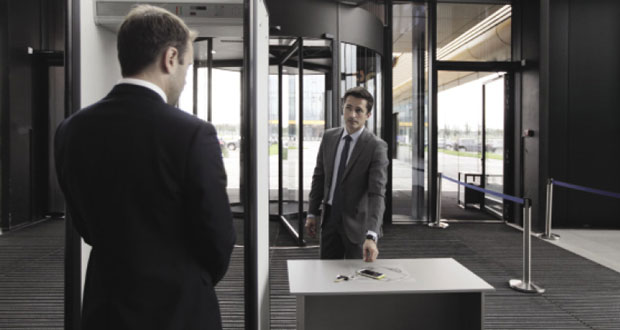The security guard role has become ever-more complex in the wake of evolving threats across digital and physical domains. This requires ever most specialist training, says Gemma Quirke – Chief Operating Officer (COO), Wilson James
Over the past few years the role of the security officer had extended beyond being a reassuring and deterring presence on-site, to taking advantage of new technologies to aid their performance. In more recent times, security people have been expected to meet ever changing expectations with the challenges of COVID-19.
By extending the security officer’s remit beyond traditional protection, organisations can create new value through the role. Security officers can effectively respond to all kinds of threats and become an extension of your customer service function. Dynamic rostering, service design, and technology can all make security teams more efficient and cost-effective.
Taking an outcome-driven approach and looking at the bigger goals and objectives of a security service will create a more cost efficient and results-driven security team. Engaging with security experts early-on in designing the scope of the service required, can help organisations invest in the right mix of officers and technology. This approach allows for specialist security officers to be recruited and upskilled for a specific organisation and technology set-ups. They can hit the ground running, with the right skills to work with CCTV and access control, understand data from incident management systems, and make decisions that influence security and operations.
INVEST IN TRAINING
Importantly, giving security officers greater career development and a wider scope of work can help to keep them engaged and satisfied in their roles. A core part of this involves training. A bespoke training package that covers all mandatory training (such as licensing and counter-terrorism) is the first step.
Progressive security providers should be able to offer their employees development opportunities in a diverse range of skills, such as customer service, business continuity, crisis management, and emergency or first response (to name but a few).
This creates a well-rounded security officer who is prepared for many situations and can interact with a range of people. Creating clear learning pathways and capability frameworks will also tell officers what skills they need to acquire in order to reach the next level. This gives them goals to aim for when upskilling and also shows that their employer is engaged with their career growth.
LONG-TERM CAREERS
Providing training opportunities for staff can also improve retention, as research has shown that 46 per cent of workers say that they will leave their employer if they don’t see a commitment to their learning. Employers who therefore do invest in their employees engender loyalty and therefore long- term benefits.
This is something recently experienced by Fiza Ali, an employee at Wilson James who is currently seconded to a museum group in central London. After working for three years as a security officer she undertook a six-month leadership course. She gained enormously from the training, which resulted in promotion to current role as team leader.
As an individual’s talents increase, the scope of their skills can be reconsidered and reassigned, adding more value to the customer and – importantly – better job satisfaction for the employee. Employees can also take these talents into their personal lives and communities in positive ways, expanding the impact of the investment made in individuals.
THE NORMALISATION OF HYBRID LEARNING
Long gone are the days of solely learning in a classroom. For some skills, requiring in-person interaction (such as behaviour detection awareness where understanding body language and tone are vital), physical on-site training will remain the best method. Yet, for other learning programmes like onboarding or upskilling someone in basic digital skills, security companies can provide a wealth of online learning which can now be completed on-the-go through bite-size learning via online hubs, videos, podcasts, articles and more.
Hybrid learning has been embedded in our workplaces due to COVID and it is very unlikley that we’ll go back to a classroom only environment. Hybrid learning is the future for all industries, including security.
GREATER CONFIDENCE
The end result of such efforts is a security workforce that can go above and beyond to surprise and delight, and deliver true peace-of-mind. It’s ultimately about professionalising the security role, with specialised qualifications and knowledge, a dedicated career path, and membership of different professional bodies and institutes.
This approach is proving popular with the officers themselves. Ricardo Da Silva, a security officer based in London, joined Wilson James due to its opportunities for growth and promotion. During his five-and-a-half-year security career to-date, he has worked at some major corporates. He is currently completing a customer service course covering front-of-house skills, policies, procedures, and events security. Prior to this, Da Silva completed courses on hostile reconnaissance, as well as emergency first aid.
Training has also equipped Da Silva with the digital skills he needed to increasingly use technology in his role.
SECURITY, AT ITS BEST
At its heart, security is still focused on protecting and reassuring people. Yet, the role of the security officer continues to become more bespoke and customer-focused. As Fiza Ali, Team Leader at Wilson James says, “We really pride ourselves on making people feel welcome and safe… It’s about trying to be the best version of yourself.”





